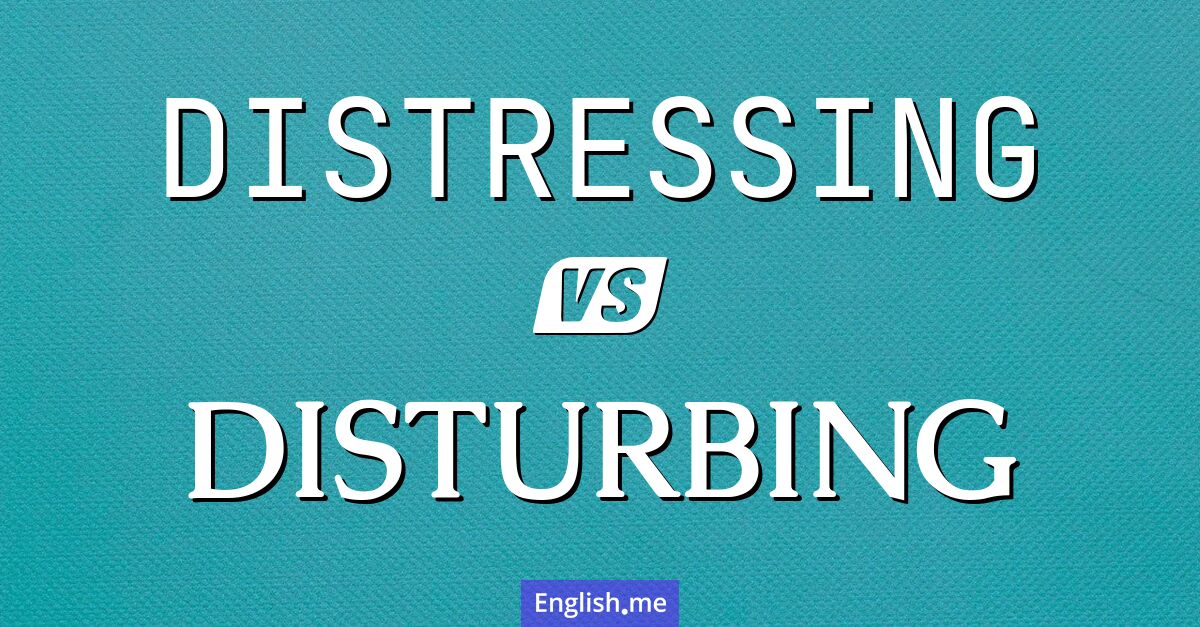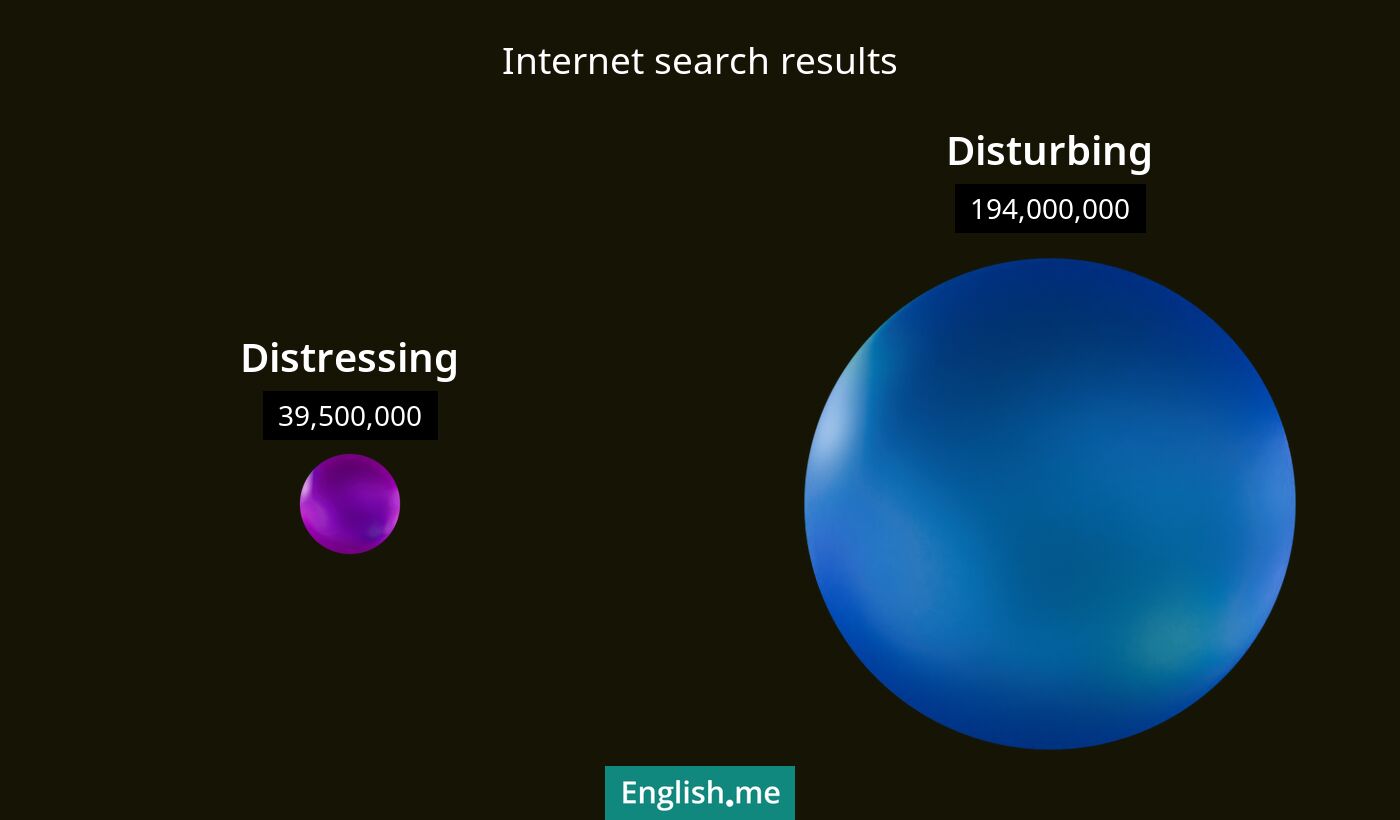"Distressing" vs. "disturbing": a battle of unease
Reviewed and edited by  Lloyd Cooper 19/10/2024, 23:27
Lloyd Cooper 19/10/2024, 23:27
English.me team member

 What is similar?
What is similar?
Both "distressing" and "disturbing" describe something that causes emotional discomfort or negative feelings. They can refer to events, situations, or information that are troublesome or cause worry.
 What is different?
What is different?
"Distressing" often implies causing anxiety, sadness, or emotional pain, and it can involve an element of suffering or hardship. "Disturbing", on the other hand, suggests something that interrupts peace of mind or causes alarm, shock, or upset. While both words can overlap, "disturbing" can sometimes carry a stronger connotation of causing fear or unease.
 Which one is more common?
Which one is more common?

 Examples of usage
Examples of usage
Distressing- The news of the accident was deeply distressing to all who heard it.
- Seeing the animal in pain was a distressing experience for the children.
- She found the constant worrying about her future very distressing.
- The movie contained scenes that were quite disturbing to watch.
- He received a disturbing phone call late at night.
- There was a disturbing lack of empathy in his response.

 English
English español
español française
française italiano
italiano deutsche
deutsche 日本語
日本語 polski
polski česky
česky svenska
svenska Türkçe
Türkçe Nederlands
Nederlands